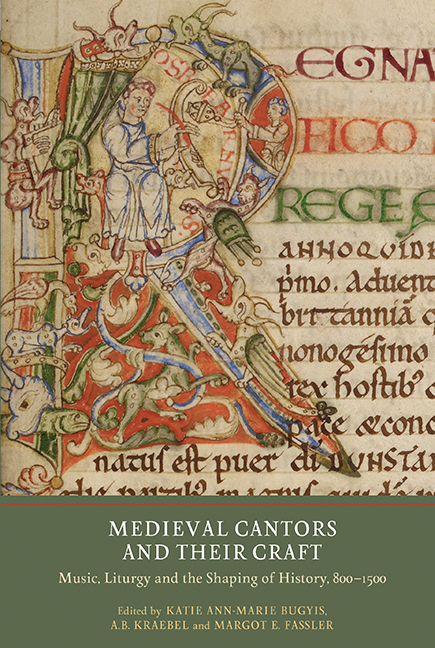Book contents
- Frontmatter
- Dedication
- Contents
- List of Illustrations
- Contributors
- Acknowledgments
- Abbreviations
- Miscellaneous Frontmatter
- Introduction
- PART I The Carolingian Period
- 1 Historia: Some Lexicographical Considerations
- 2 Liturgy and History in the Early Middle Ages
- 3 Notker Bibliothecarius
- 4 Singing History: Chant in Ekkehard IV's Casus sancti Galli
- PART II The Eleventh Century
- PART III England in the Twelfth Century
- PART IV On the Continent: Five Case Studies
- Index of Manuscripts
- General Index
- Miscellaneous Endmatter
1 - Historia: Some Lexicographical Considerations
from PART I - The Carolingian Period
Published online by Cambridge University Press: 25 October 2017
- Frontmatter
- Dedication
- Contents
- List of Illustrations
- Contributors
- Acknowledgments
- Abbreviations
- Miscellaneous Frontmatter
- Introduction
- PART I The Carolingian Period
- 1 Historia: Some Lexicographical Considerations
- 2 Liturgy and History in the Early Middle Ages
- 3 Notker Bibliothecarius
- 4 Singing History: Chant in Ekkehard IV's Casus sancti Galli
- PART II The Eleventh Century
- PART III England in the Twelfth Century
- PART IV On the Continent: Five Case Studies
- Index of Manuscripts
- General Index
- Miscellaneous Endmatter
Summary
Introduction to the term ‘historia’
This chapter seeks a clearer understanding of what medieval historians said about the nature of history, especially in the period before 1200. The two essential studies of the meaning of history in the Middle Ages are the chapter by Gert Melville in the volume Formen der Geschichtsschreibung and Peter von Moos's prodigiously learned monograph, Geschichte als Topik. They both seem to me to have been largely ignored by English readers, but they offer unrivalled guidance about medieval ideas of the nature and function of history. Lastly, but by no means least, in English there is the recent book by Matthew Kempshall, Rhetoric and the Writing of History, 400–1500.
The questions I shall address include: What is the purpose of history? What is its literary genre? How does human history relate to divine history? And lastly, what is the place of hagiography in history? Many of the chapters in this volume are concerned with views of the past and the shaping of the past in various kinds of writing, ranging from chronicles to saints’ lives, and the roles that musically and liturgically trained authors played in these many understandings of the past. My work looks instead at the term ‘historia’ in a narrower sense, one rising out of classical antiquity – an understanding that I believe continued to be important in the Middle Ages, especially in the Carolingian period.
I begin with a quotation from Burckhardt, which defines my own position: ‘While philosophers of history see the past as a contrast and a preliminary stage to our development, we look at what is constant and recurrent as something echoing in us and so comprehensible.’ The sense of historical constants, so ably explored by Burckhardt in his lectures on the study of history, is absent from most courses of study today, but it was a medieval commonplace. The ways in which God had treated earthly powers were always instructive, and they followed a pattern. Orosius, for example, writes, ‘Multa convenienter inter Babylonam, urbem Assyrirorum tunc principem gentium, et Romam, acque nunc gentibus dominantem, conpacta conscipsi’ [‘I noted the many points of similarity between the Assyrian city of Babylon, which was the leading nation at the time, and Rome, which dominates the nations in a similar way today’].
- Type
- Chapter
- Information
- Medieval Cantors and their CraftMusic, Liturgy and the Shaping of History, 800-1500, pp. 8 - 22Publisher: Boydell & BrewerPrint publication year: 2017

